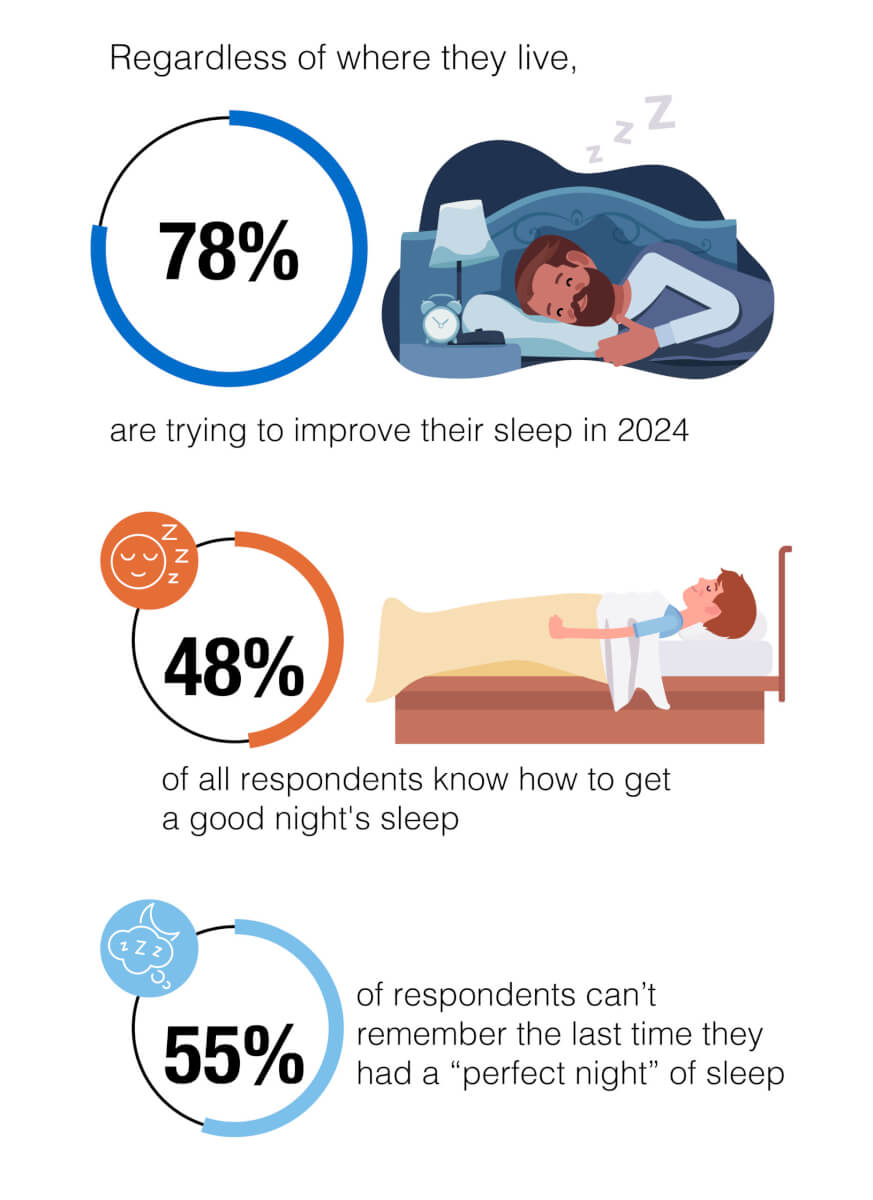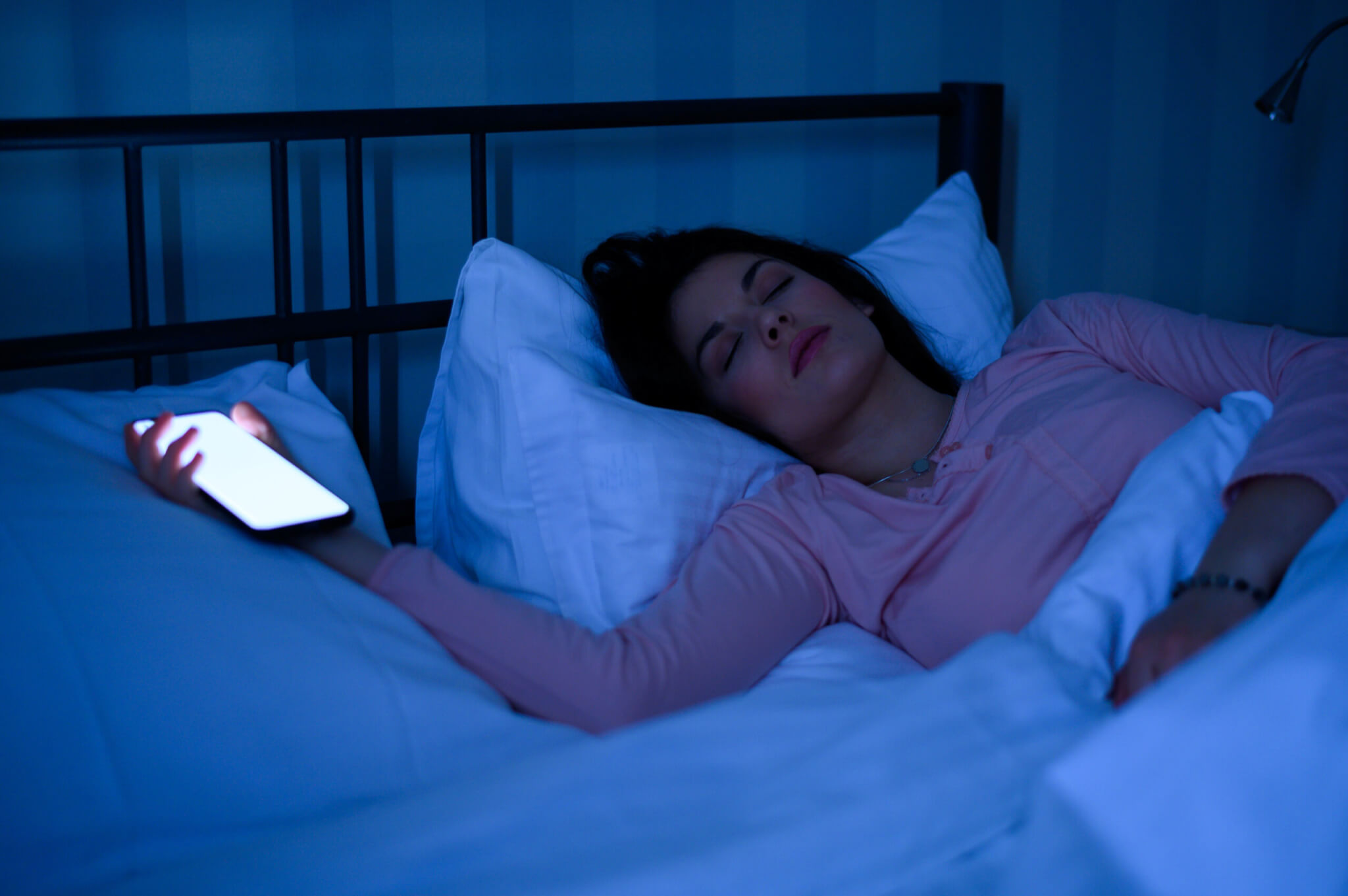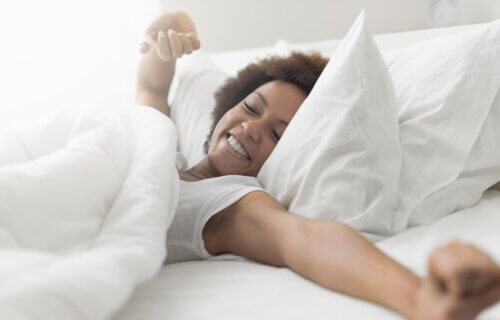NEW YORK — Those looking for a good night’s rest should head to the Golden State. A new survey finds that Californians get the best sleep in America.
The poll of 5,000 Americans, split evenly by state, asked respondents about the average quality of their sleep, how many high-quality nights of sleep they get each week, and the hours of sleep they average per week. Looking at an average of those three numbers, respondents in California get the best sleep. Although the West Coast state comes in first, the rest of the top five sits on the East Coast.
South Carolina and New York came in second and third, respectively, with Maryland and New Jersey tied for fourth and North Carolina taking fifth.
Commissioned by Herbalife and conducted by OnePoll, the survey reveals there’s still a lot left to be desired when it comes to respondents’ sleep. Despite coming in first place overall, Californians say their sleep only averaged 6.5 out of 10 for quality — and they spend just over half the week (four nights) receiving high-quality nights of sleep. Even though experts recommend that adults sleep between seven and nine hours a night, those in California receive just over six and a half hours of sleep per night.
Regardless of where they live, 55 percent of respondents can’t remember the last time they had a “perfect night” of sleep — and 78 percent can’t recall when they last had a “perfect week” of sleep.

While “perfect” sleep might not be attainable, around half (48%) say they still know how to get a good night’s sleep. Even then, respondents admit to watching TV (66%) or scrolling through their phone for an extended period of time — either on social media (38%) or otherwise (29%) — in the two hours before bed, activities which aren’t recommended ahead of sleeping.
Californians are slightly better than average, which might be why their state came out as No. 1 for overall sleep. Only 54 percent watch TV before bed, while 32 percent scroll through social media and a quarter (25%) do something else on their phone before falling asleep.
“The unfortunate truth is the blue light from TVs, phones and digital devices unequivocally impairs sleep quality. Even if you’re able to fall asleep, the quality of sleep is reduced and your brain biology is disrupted,” says spokesperson John Heiss, Ph.D., vice president of Global Product Innovation at Herbalife, in a statement. “The additional problem with blue light is that it disrupts your circadian rhythm, which controls mood, organ function and metabolism. If you’re experiencing food cravings, blue light may be the culprit.”
Seventy-eight percent of respondents say they’re trying to improve their sleep in 2024. This involves making their bedtime and morning routines more consistent (44%), taking time away from screens before bed (39%), and eating less in the evening before bed (30%).
Forty-four percent of respondents also say that improving the quality of their sleep is their No. 1 priority in life right now. Getting better sleep is key, as 74 percent of respondents agree that when they receive poor-quality sleep, their overall health is negatively impacted.
This was true across generations, but Gen Zers are the least likely to agree: 67 percent of Gen Z say poor-quality sleep impacts their health, compared to 78 percent of millennials surveyed. Regardless of their age, respondents say poor-quality sleep leads to a lack of energy (67%) and feelings of anxiety or depression (41%) — it also makes them short-tempered with loved ones (38%) and less motivated at work (33%).
Bad sleep can also be a cycle: those surveyed say when they sleep poorly, they sleep less well the following night(s) (21%). The effects of poor-quality sleep varied by generation, too: baby boomers are most likely to report a lack of energy (71% vs. 63% of millennials), while millennials are the most likely to become short-tempered (45% vs. 25% of baby boomers).

The survey also reveals some interesting differences between how men and women sleep. Thirty-seven percent of men say they “often” or “always” feel sleep deprived — compared to half of women. While 52 percent of men remember the last time they got a “perfect night” of sleep, only 42 percent of women say the same — with a similar pattern emerging when respondents were asked about a “perfect week” of sleep.
Twenty-seven percent of men are able to recall the last time they had a week of flawless sleep, compared to 19 percent of women surveyed.
“Getting enough quality sleep is essential to our well-being. In fact, sleep supports a variety of important functions including our metabolism, brain health and can have an impact on certain health conditions like heart disease, obesity and depression,” says Dr. Heiss. “A New Year resolution to improve your sleep quality will undoubtedly have many health benefits. Specific actions you can take are limiting screen time an hour before bed, keeping a consistent sleep schedule — especially on weekends, regular exercise, limiting food within three hours of sleep and relaxation techniques such as reading, breathwork or meditation before bed.”
State ‘Sleep Scores’ From Best Sleep To Worst:
- California
- South Carolina
- New York
- Maryland (tied for fourth)
- New Jersey (tied for fourth)
- North Carolina
- Pennsylvania
- Ohio (tied for eighth)
- Arizona (tied for eighth)
- Washington (tied for eighth)
- Michigan (tied for 11th)
- Colorado (tied for 11th)
- Georgia (tied for 13th)
- Texas (tied for 13th)
- Virginia
- Illinois (tied for 16th)
- Rhode Island (tied for 16th)
- Wisconsin
- Arkansas (tied for 19th)
- Tennessee (tied for 19th)
- Alabama
- Florida (tied for 22nd)
- Missouri (tied for 22nd)
- Mississippi (tied for 22nd)
- Alaska
- Delaware (tied for 26th)
- Indiana (tied for 26th)
- Nevada (tied for 26th)
- New Hampshire (tied for 26th)
- Louisiana (tied for 30th)
- South Dakota (tied for 30th)
- Kentucky
- Utah (tied for 33rd)
- North Dakota (tied for 33rd)
- Vermont (tied for 33rd)
- Oregon
- Idaho (tied for 37th)
- Iowa (tied for 37th)
- Nebraska (tied for 37th)
- Massachusetts (tied for 37th)
- New Mexico (tied for 37th)
- Connecticut
- Kansas (tied for 43rd)
- Oklahoma (tied for 43rd)
- Minnesota (tied for 43rd)
- Hawaii (tied for 46th)
- Wyoming (tied for 46th)
- Maine
- West Virginia
- Montana
Survey methodology:
This random double-opt-in survey of 5,000 Americans, split evenly by state (with quotas for age), was commissioned by Herbalife between Oct. 20 and Nov. 6, 2023. It was conducted by market research company OnePoll, whose team members are members of the Market Research Society and have corporate membership to the American Association for Public Opinion Research (AAPOR) and the European Society for Opinion and Marketing Research (ESOMAR).
